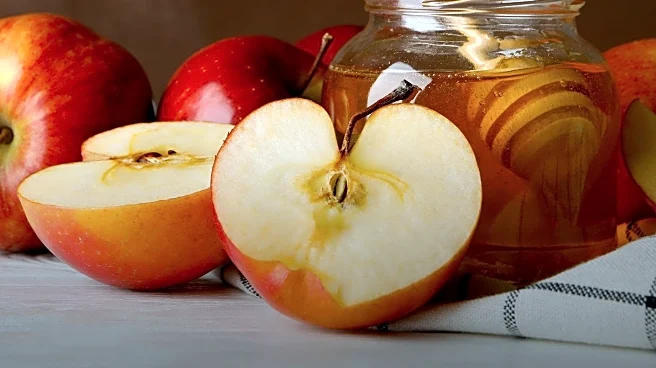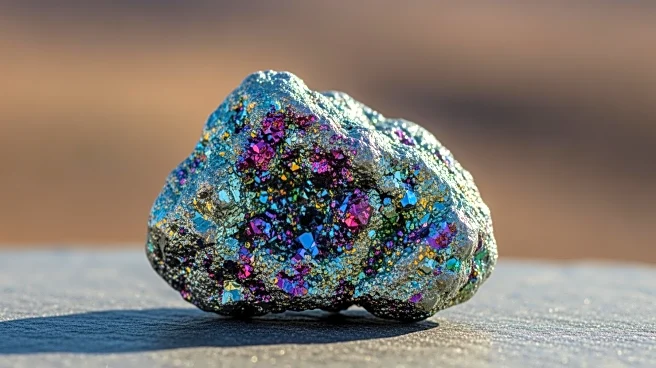What's Happening?
Rosh Hashanah, the Jewish New Year, begins at sunset on September 22, 2025, and ends at sunset on September 24. It marks the start of the Jewish High Holidays, a ten-day period of repentance culminating in Yom Kippur, the Day of Atonement. Celebrations include prayers, special foods, and gatherings, with traditions such as blowing the shofar and performing Tzedakah. The holiday is observed with family and community events, emphasizing reflection and renewal for the coming year.
Why It's Important?
Rosh Hashanah is a significant religious observance for Jewish communities, fostering spiritual reflection and community bonding. The holiday's emphasis on repentance and renewal offers an opportunity for individuals to assess their actions and seek forgiveness. It also highlights the cultural and religious traditions that strengthen community ties and identity. The observance of Rosh Hashanah contributes to the preservation of Jewish heritage and promotes interfaith understanding.
What's Next?
Following Rosh Hashanah, the Jewish community will prepare for Yom Kippur, the holiest day of the Jewish calendar. The period between these holidays is marked by introspection and spiritual preparation. Community leaders and religious institutions may organize events and services to support observance and reflection. The broader public may engage in educational initiatives to learn about Jewish traditions and their significance.
Beyond the Headlines
Rosh Hashanah celebrations reflect broader themes of cultural preservation and religious freedom. The holiday's observance can foster dialogue and understanding between different faith communities, promoting inclusivity and respect. The traditions associated with Rosh Hashanah offer insights into the values and practices that shape Jewish identity and contribute to cultural diversity.








